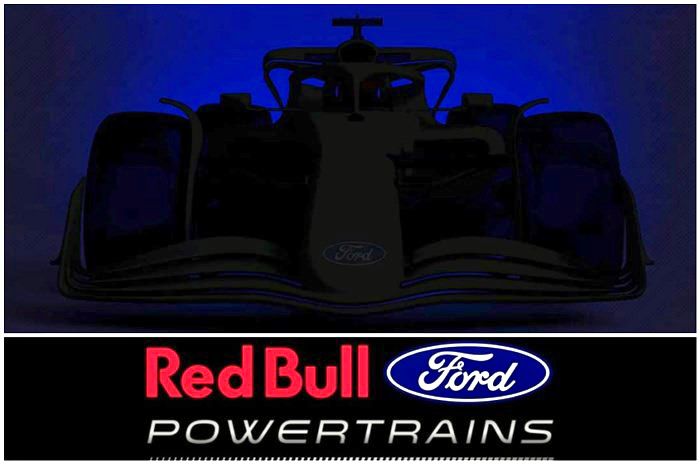
Ford will co-develop the power units for Red Bull Racing and AlphaTauri from 2026 onwards.
Ford is all-set to return to F1 after over 20 years, confirming the news at the unveil of Red Bull Racing’s new 2023 F1 car. The American giant will team up with Red Bull from 2026 onwards, when F1’s new engine regulations come into place.
- Ford won’t field a factory team
- Will co-develop engines for Red Bull and AlphaTauri
Ford to help Red Bull develop F1 engine
Ford won’t be fielding its own factory team. The company has instead tied up with Red Bull Powertrains, and they will together develop the power units for Red Bull Racing and AlphaTauri from 2026 to at least 2030.
Red Bull Racing was earlier in partnership talks with Porsche. But those discussions fell through, with Porsche stating, “The premise was always that a partnership would be based on an equal footing, which would include not only an engine partnership but also the team. This could not be achieved.”
Ford says it will help Red Bull in combustion engine development and other areas like the battery cell, electric motor technology, power unit control software and analytics.
“As an independent engine manufacturer to have the ability to benefit from an OEM’s experience like Ford puts us in good stead against the competition,” said Christian Horner, Red Bull Racing team principal.
“They are a manufacturer rich in motoring history that spans generations. From Jim Clark to Ayrton Senna and Michael Schumacher, the lineage speaks for itself. For us as Red Bull Powertrains to open the next chapter of that dynasty, as Red Bull Ford, is tremendously exciting. 2026 is still a while a way but for us the work already starts as we look to a new future and a continued evolution of Oracle Red Bull Racing.”
Why is Ford returning to F1?
The new engine rules, which have also encouraged Audi to enter F1, will see the complex MGU-H system (capturing energy from exhaust gases) scrapped. Instead, the MGU-K (re-captures energy under braking) will generate 350kW – more than three times the electrical power generated by the MGU-H and MGU-K together currently. Moreover, the 1.6-litre turbo engine will run on fully sustainable fuel.
“Ford’s return to Formula 1 with Red Bull Racing is all about where we are going as a company– increasingly electric, software-defined, modern vehicles and experiences,” said Jim Farley, President and CEO, Ford Motor Company. “F1 will be an incredibly cost-effective platform to innovate, share ideas and technologies, and engage with tens of millions of new customers.”
Ford’s F1 history
Ford remains the third-most successful engine manufacturer in F1 history. Their association with the championship goes all the way back to the 1960s. Different iterations of their Double Four Valve (DFV) engine, built in partnership with Cosworth, won 155 races from 1967 to 1985. Their last stint in F1 was with Jaguar from 2000 to 2004 with Ford badging on the Cosworth engines.
The manufacturer remains active is nearly all the major racing series worldwide, including the World Endurance Championship with the Mustang GT3, World Rally Championship with the M-Sport Ford Puma Hybrid Rally1, Dakar with the Ranger Raptor and NASCAR with the Mustang.
Also see:
How F1’s new fuel could keep the internal combustion engine alive
